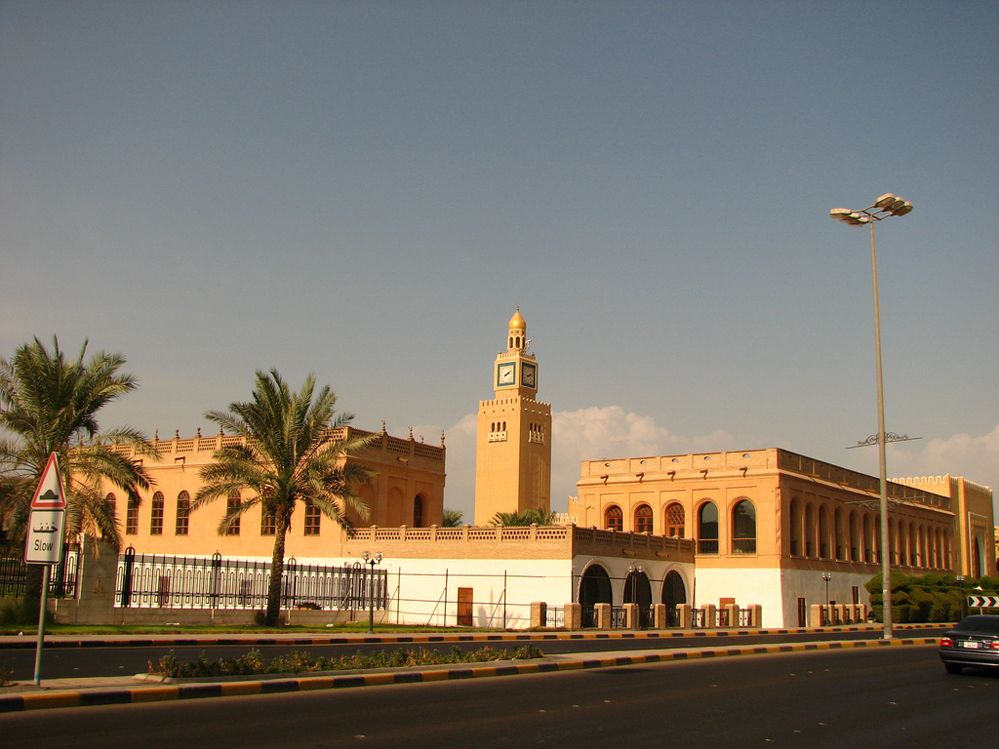From his flat, he has a good, commanding view of the Palace of Amir in Kuwait. It was, for him, a daily sight commencing from the time in 1996 when he was taken in as electrician among several Foreign Service nationals who are providing maintenance works for the American Embassy Building in Kuwait. Seven years later, and up until now, he is still active member of the same contingent, of which not less than fifteen are Filipinos.

So many good things have happened since then, none the least of which their beautiful house along Sampaloc Road in Tanay, now nearing completion, erected on a 197 sq. meter lot that they bought when he worked at an overseas job in Diego Garcia. The long, trying hard years of continuous toil are paying off. If, as one author says, the past is a restless grave, revisiting it would certainly give it peace, the kind of serenity one gets in seeing the fulfillment of one’s cherished dreams. Suddenly, Romy felt the old wounds of the past throbbing to line.
He became a member of Class ’64, not for any mediocre reasons since he was originally a year ahead, but because penury dictated that he stopped after third year high. The second in a brood of seven, it was simply beyond his family’s means to sustain his educational needs. At such young age, he worked as a ‘grocery boy’ in Tanay for one year, earning just enough to allow him to enroll at SIC for his 4th year class. Only two months following his high school graduation, he applied as a helper colorist in Gentex, a large garment manufacturing company in Libis, Quezon City, earning a daily wage while commuting daily to Tanay via the now extinct ‘Rizman transit lines’.
After five years with the same company, he became an Assistant Overseer, no different from a leadsman, and with his stable monthly income and a permanent shift, he enrolled himself on a night school for Electronics Technician, finishing the course in two years. He stayed at Gentex for a straight thirteen years. His marriage in 1981 inspired him to look at jobs overseas and in 1981, he tasted life in Riyadh, Saudi Arabia with Altech Constructors, Inc. doing repair jobs.
After only four months, he returned to the Philippines only to be sent back, this time to Iraq, by the same company for a two-year contract. With his developed skill, he applied to another company, Erecsa (Engineering Resources Exporting Services Contracting Agent) and was hired as Electrician, Class A, and was sent to the U.S. Naval Base in Diego Garcia, a British territory leased to the U.S., where they constructed base housing and dining facilities. Favored with an annual vacation, he worked at Diego Garcia for two years and three months.
Returning back to the Philippines after his contract, he returned to Altech and was assigned to its local project, Filipinas cement, working in joint venture with Fortune and Republic cement. Here, he worked for two years. He worked for a time, too, at the Southern Philippines before Altech called him for a job at a Power Plant in Syria that lasted for one year. On his return home, his former employer, Erecsa, took him for its project in Kuwait and employed as Electrician, the company built the American Embassy building. Following its completion that took one and a half years, the U.S. embassy announced its opening for the direct hiring of a permanent maintenance crew and Romy, with his known skill and long experience as an electrician, was among the fortunate few. The good benefits and secured employment he have, coupled with an annual vacation that stretches from one month to a maximum of forty-five days per year, are for him and his family, assuring signs of a future anchored on steady roots.

His wife, Susan, is still with Gentex and, with her long service record, provides added strength to a dreamed retirement in the coming years, replete with glowing accomplishments and financial securities. Susan, as a loving and dutiful wife, proved herself more than capable to the task a man could wish for in a lifetime partner. Looking back, he felt refreshed by the recall of their simple beginnings…
“Masyado ka namang suplado…!” was what Romy recalled Susan said when her group of girls passed by and asked for some ice on their way to the canteen. Romy’s curt answer, “O, sige, kuha kayo diyan…” without even looking at them and seemingly irked by the request, sounded uninviting. That ‘unfriendly’ encounter occasioned the uneasy nights that followed Romy’s focus on Susan who was born and grew up in Sampaloc, Manila, and the fourth or seven children. Younger by four years, Susan came to Gentex a bit later, a time when none of Romy’s relationships with girls ever attained to serious stage. Gradually, Romy started using the laboratory’s curing machine close to Susan’s section, a way to feast his sight on Susan who somehow welcomed the move. Susan’s eventual transfer to the laboratory as a helper brought them even closer and, as fate would have it, led to their understanding. It was a long engagement: 5 years, more than enough to keep them assured of each other’s feelings. On a cool day of June 21, 1980, Romeo Avila, 30, and Susana Velasco, 25, pledged undying love to each other in a well-attended church wedding made memorable by Claro Samonte Jr.’s singing of their beloved theme song, “Portrait of my Love.”
The initial fruit of their love came early – to compensate somehow for their long wait – as Roselle, their eldest, came to this world on November 8, 1981. Just turned 22, she finished Computer Science at the Centro Escolar University. Their second child and only son, Rommel, was born on December 9, 1982, and reached second year in Computer Science. Their youngest, April Rose, named after the month she was born, saw the light of day on April 15, 1985, and already on her second year of Mass Communications at the La Consolacion College in Manila. Owing to their young age, none of their three children has yet married and, from Romy’s wide mile, I detected a sense of relief, if not gratitude, no different from novice gladiators who have yet to be tested in the arena.
Romy’s initial reluctance to the interview in the absence of his wife had to do with his fears that memory may fail him on the important details. I assured him otherwise and, true enough, with my intense questionings, important facts came out which, left unsaid, may, by the passage of time, be already beyond recall. This reality highlights the importance of the book Class ’64 is taking credit on. It will preserve life histories that will be read by our children and those coming after them, leaving lessons and idealisms that will guide or strengthen them in their own struggles. The interview was short, not even lasting for an hour, but for all that our active and busy life has denied us, this book, hopefully will last a millennium.







